Publications

Regulating the transportation of small arms and light weapons
- Peter Danssaert | 23 juillet 2024
The use of private transport contractors, including for the provision of transportation, freight forwarding and charter services to ship and deliver small arms, light weapons (SALW), and their parts, components and ammunition, is not adequately covered by national legal and regulatory frameworks. Inadequate regulation of SALW transport service providers, border posts and ports encourage unscrupulo

Voix du Congo: Exploitation des enfants dans les mines artisanales d’or de la chefferie de Mariminza, territoire de Watsa : étude de cas de Menze et Babarau
- RECOREN | 16 juillet 2024
Une publication de la série: VOIX DU CONGO. Télécharger le rapport Cette recherche soulève la problématique du travaildes enfants dans les mines artisanales en chefferiede Mariminza à travers les exemples des carrières de Menze et Bararau (territoire de Watsa, province du Haut-Uélé). A partir d’une approche qualitative basée sur plusieurs entretiens de terrain et une revue de littérature, elle ide

Regulating the brokering of small arms and light weapons
- Brian Wood, Peter Danssaert | 28 juin 2024
Especially since the 1990s, international transfers of SALW and ammunition have been conducted in increasingly differentiated markets. A multitude of products, buyers and suppliers around the world, including State-owned entities and large defence manufacturers, use the services of specialist intermediaries, as well as private agents and dealers. States often use brokering services for the purpose
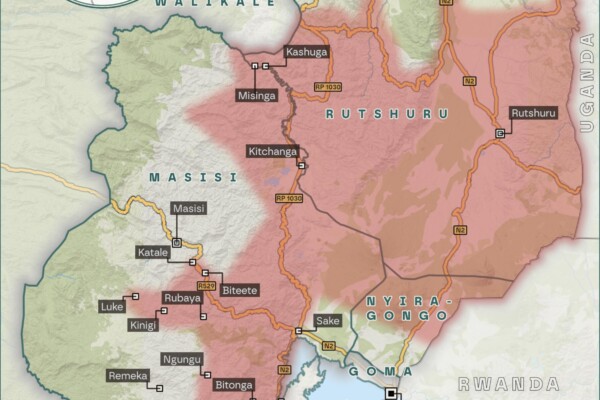
Shifting frontlines: Visualizing the evolution of the M23’s territorial influence in early 2024
- Ken Matthysen | 20 juin 2024
In early 2024, IPIS, ASSODIP, and DIIS published a report on the stakes and motivations of the “March 23 Movement” (M23), a rebellion causing serious insecurity and humanitarian suffering in the eastern Democratic Republic of Congo (DRC). The movement took up arms again in 2021, and it rapidly seized vast territories in the south-east of North Kivu province in 2022, with military support
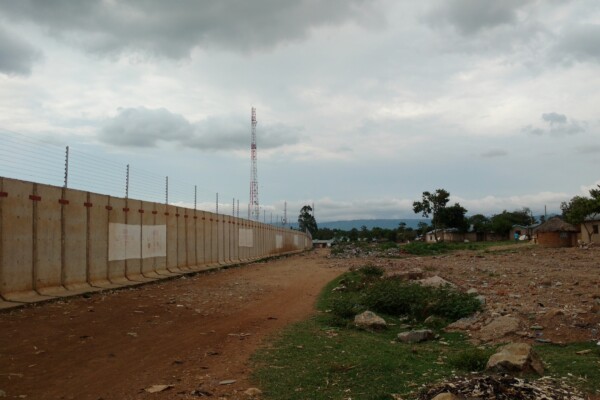
Voices from Tanzania – Social and economic impacts of land acquisition by Barrick North Mara Gold Mine in Tanzania: A case study of Komarera, Kewanja and Mjini Kati villages in Tarime District
- Himiza Social Justice | 19 juin 2024
This publication is part of IPIS’ Voices from Tanzania series and its edition on “The impact of land acquisition practices in the extractive sectors of northern Tanzania”. In their Voices from Tanzania study Himiza Social Justice assesses the socio-economic impacts of land acquisition practices by the industrial Barrick North Mara gold mine on 3 villages in Tarime district, Mara region. Downl
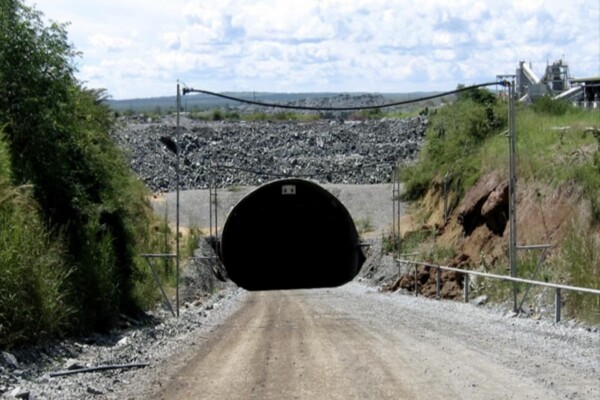
Voices from Tanzania – The social-economic impact of land acquisition practices related to Bulyanhulu Gold Mine on communities in Msalala district council, Shinyanga region
- Rafiki SDO | 17 juin 2024
This publication is part of IPIS’ Voices from Tanzania series and its edition on “The impact of land acquisition practices in the extractive sectors of northern Tanzania”. In their Voices from Tanzania study Rafiki SDO assesses the socio-economic impacts of land acquisition practices by the Bulyanhulu gold mine on 2 villages in Msalala district council, Shinyanga region. Download the report (EN) P
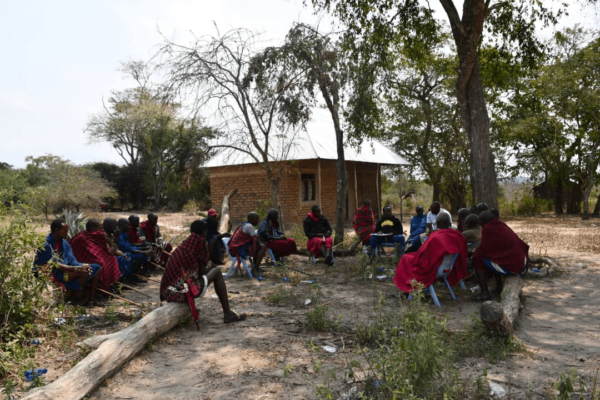
Voices from Tanzania – Small-scale producers’ awareness and involvement in the process of land acquisition for the East Africa Crude Oil Pipeline: The case study of Kilindi district in Tanga region
- HAKIARDHI | 11 juin 2024
This publication is part of IPIS’ Voices from Tanzania series and its edition on “The impact of land acquisition practices in the extractive sectors of northern Tanzania”. In their Voices from Tanzania study HAKIARDHI assesses the level of awareness and involvement of small-scale producers in the land acquisition processes for the East African Crude Oil Pipeline (EACOP) in 2 villages of Kilin
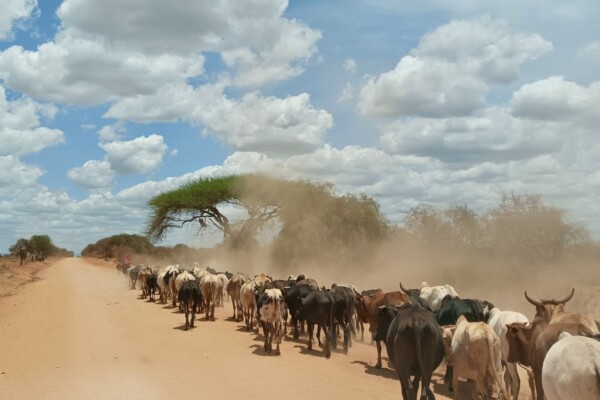
Voices from Tanzania – The impact of land acquisition processes for the East African Crude Oil Pipeline project on communities in Kiteto district, Manyara region
- KINNAPA Development Programme | 5 juin 2024
This publication is part of IPIS’ Voices from Tanzania series and its edition on “The impact of land acquisition practices in the extractive sectors of northern Tanzania”. In their Voices from Tanzania study Kinnapa Development Programme discusses the impact of land acquisition processes for the East African Crude Oil Pipeline (EACOP) project on 3 village communities in Kiteto district, Manyara re
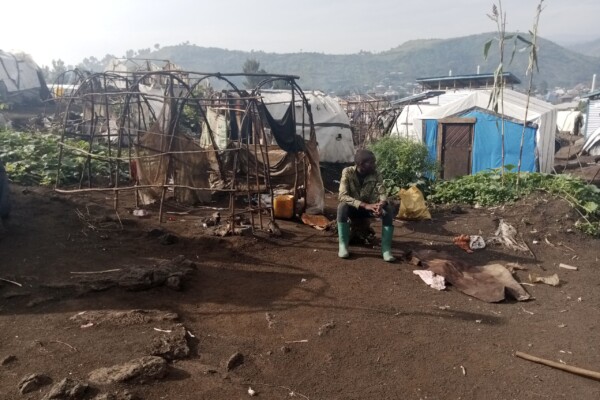
Le M23 « version 2 » : Enjeux, motivations, perceptions et impacts locaux
Depuis 2021, l’est de la République démocratique du Congo (RDC) est à nouveau sous l’emprise du groupe armé du « Mouvement du 23 mars » (M23). Défait en 2013, le M23 a repris les armes en 2021, et réussissait en 2022 à s’emparer rapidement de vastes territoires au sud-est de la province du Nord-Kivu.

Due diligence and corporate accountability in the arms value chain
- Liliana Lizarazo-Rodriguez, Markus Fahlbusch | 27 mars 2024
Given the nature of the products commercialised by arms value chains, and their potentially devastating impacts on human dignity, states have a strict obligation to control operators in this economic sector. But is compliance with export controls sufficient for companies to assess risks to human rights? This report analyses the possibility and necessity of establishing corporate responsibility and
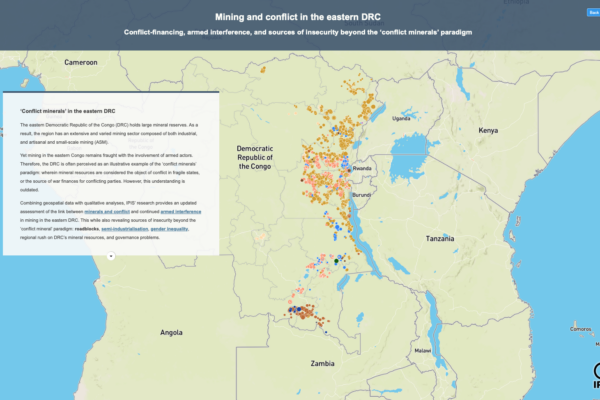
Exploitation minière et conflit dans l’est de la RDC: Une carte narrative interactive
- Alexeï Delanghe, Ken Matthysen | 11 mars 2024
Financement des conflits, ingérence armée et sources d’insécurité au-delà du paradigme des « minerais de conflit » Dans cette carte narrative, IPIS présente les résultats de ses recherches sur le lien entre l’exploitation minière et le financement des conflits dans l’est de la République démocratique du Congo (RDC). Basée sur une enquête menée entre 2021-2023 dans 829 sites miniers actifs (représe
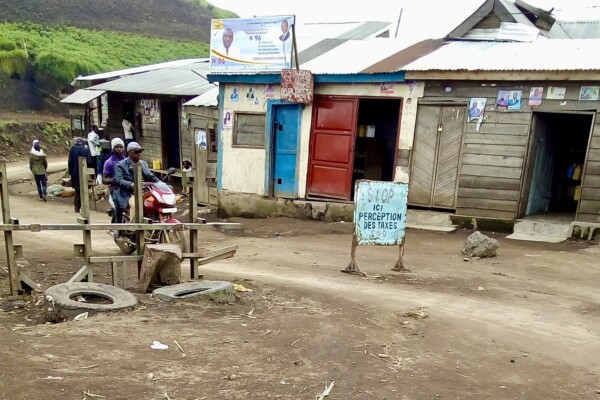
Barrages routiers à Masisi et Walikale: Prédation sur la circulation en période de troubles
Si les minerais sont au centre des recherches sur le financement des conflits en République démocratique du Congo, les acteurs armés ont souvent recours à d’autres sources de revenus pour financer leurs luttes. Lesbarrages routiers en font. Dans ce rapport, produit en collaboration avec ASSODIP et le Danish Institute for International Studies (DIIS), IPIS étudie le lien entre les barrages routiers
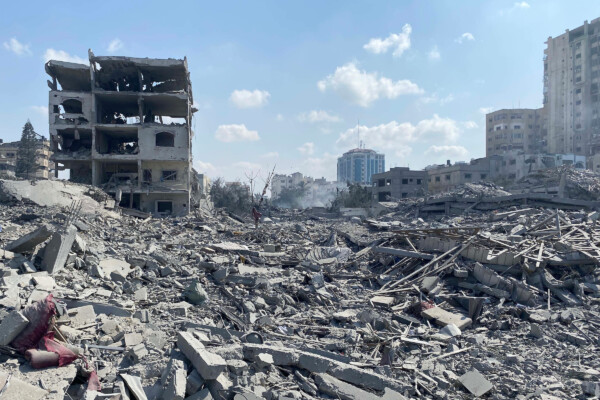
Belgian arms exports to Israel: The discrepancy between words and deeds in export control policy
- Hans Lammerant (Vredesactie) | 5 mars 2024
In this report, Vredesactie and IPIS take a critical look at Belgium’s policy on the export and transit of defense-related goods and dual-use goods to Israel. The new Gaza war puts this arms trade policy back in the spotlight. The regional governments, responsible for arms trade, regularly claim to assume the highest standards. And according to current policies, Belgium does indeed have a strin

Small arms and light weapons transfer controls: Import, transit and trans-shipment
- Markus Fahlbusch, Peter Danssaert | 8 janvier 2024
The objective of strengthening controls on the transfer of small arms and light weapons (SALW) is to ensure a more responsible trade, counter the illicit trade and prevent armed violence and conflict. To be effective SALW control is not limited to export control. Consignments of SALW as well as their ammunition, parts, and components, need to be controlled at all transfer points, including at the
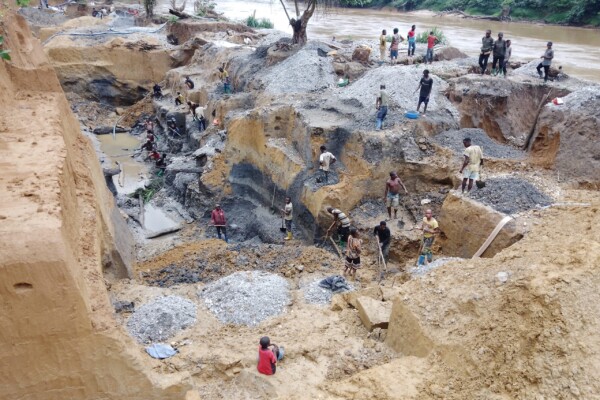
Analyse de la carte interactive des zones d’exploitation minière artisanale dans l’est de la République démocratique du Congo (Mise à jour 2023)
- Jan Leysen, Ken Matthysen, Ntakobajira Zacharie Bulakali, Thomas Muller | 22 décembre 2023
Depuis 2009, IPIS a cartographié et collecté des données sur plus de 2 800 sites d’exploitation minière artisanale et à petite échelle (EMAPE) dans l’est de la République démocratique du Congo (RDC). Dans ce rapport, IPIS fournit sa mise à jour 2023 de l’état de l’EMAPE dans l’est de la RDC, basée sur des données provenant de plus de 829 sites artisanaux et de petite échelle dans la zone entre 202
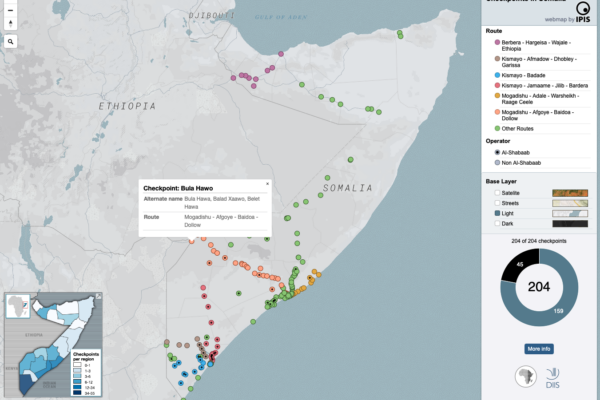
Mapping the political economy of checkpoints in Somalia
- IPIS | 20 décembre 2023
The maps inform users on the locations of roadblocks across Somalia, the distribution of violence at checkpoints as well as the density of checkpoints per administrative region. Different maps also identify varying characteristics of the roadblocks, including their operator, location on a primary/secondary road and the amount paid at the checkpoint as toll.

Increasing awareness of policy reforms on gender equality issues in artisanal and small-scale mining in eastern DRC: Case study of the Numbi, Nzibira and Nyabibwe sites
- Marie-Rose Bashwira Nyenyezi, Michaël Bahigira Akilimali | 13 décembre 2023
The mineral resources of the eastern Democratic Republic of the Congo’s (DRC) provide an important source of employment for both men and women involved in artisanal and small-scaling mining (ASM). Yet opportunities are not equal for men and women. Based on a series of interviews with various ASM stakeholders at the mines of Numbi, Nzibira and Nybibwe in the province of South Kivu, this

Due diligence and the risk of disengagement: Experiences from the mineral sector and a way forward for the CSDDD
- Boukje Theeuwes (Solidaridad), Catarina Vieira (Solidaridad), Lotte Hoex | 11 décembre 2023
The Corporate Sustainability Due Diligence Directive (CSDDD) is currently being negotiated by the European institutions. This long-awaited piece of legislation is expected to be finalised by early 2024. With the aim of holding companies operating in the EU accountable for the adverse human rights and environmental impacts of their operations and the impacts across their value chains, the Directive
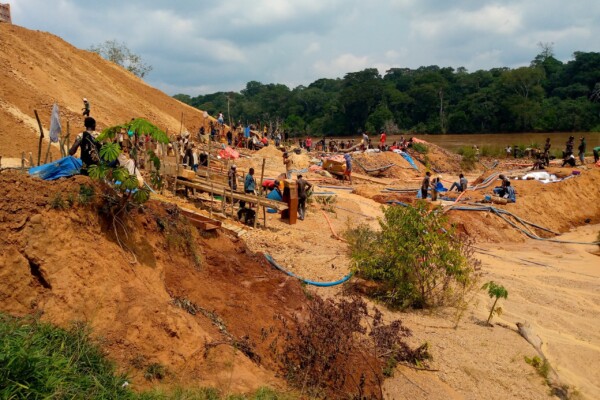
Cartographie des sites minieres artisanaux dans la région du Mambasa occidental, province de l’Ituri, République démocratique du Congo
- Guillaume de Brier | 22 novembre 2023
La partie occidentale du territoire de Mambasa, dans la province de l’Ituri, fait l’objet d’une attention limitée de la part des autorités nationales et des partenaires internationaux. Pourtant, l’expansion des activités d’exploitation artisanale et à petite échelle de l’or (ASM) y est importante, y compris dans la Réserve de Faune à Okapis (RFO). Ces opérations minières ont provoqué des tensions
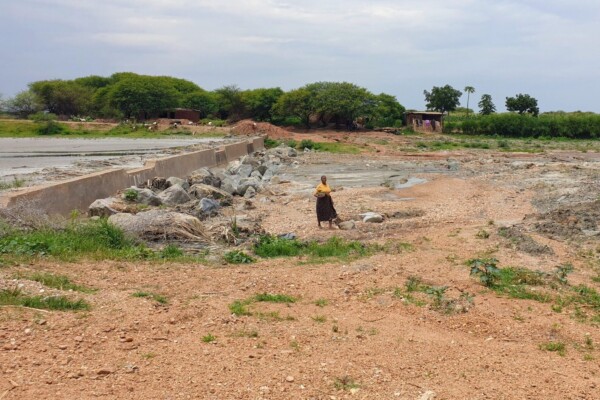
Petra Diamonds’ attempts to come clean with its tarnished past in Tanzania
- IPIS | 9 novembre 2023
Challenges in securing access to remedy and restoring community relations after serious human rights abuse at the Williamson diamond mine This report assesses the efforts by Petra Diamonds to restore community relations and remediate the legacy of serious human rights abuse at its Williamson diamond mine in Tanzania. Download the report The Williamson Diamonds mine, adjacent villages a

